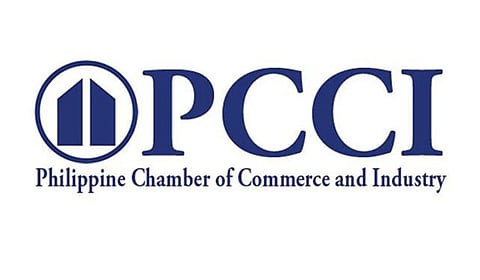
- NEWS
- the EDIT
- COMMENTARY
- BUSINESS
- LIFE
- SHOW
- ACTION
- GLOBAL GOALS
- SNAPS
- DYARYO TIRADA
- MORE

The country’s largest business organization, the Philippine Chamber of Commerce and Industry (PCCI), is wary of the retaliatory move that members of the ASEAN bloc are planning to make in response to the imposition of reciprocal tariffs by United States President Donald Trump last week.
“We are wary of the potential impact of the actions other countries may take in response to the US' reciprocal tariffs,” the PCCI said in a statement on Tuesday.
“Retaliatory measures can disrupt global supply chains, increase costs, and create uncertainty for businesses and consumers, bringing about a broad negative effect on economic growth. And more so for a remittance and consumer-driven economy like ours,” the group, headed by its president Enunina Mangio, further disclosed.
On Monday, Trade Secretary Cristina Roque said the economic team would meet this week to discuss matters regarding Malaysia’s call for a unified response among ASEAN member states to Trump’s tariffs. She stated that the Philippines, as a member of the ASEAN regional bloc, is supportive of the move of its peers.
Malaysian Prime Minister Anwar Ibrahim earlier said he had telephone discussions with other ASEAN leaders, including President Ferdinand Marcos Jr., Indonesian President Prabowo Subianto, Singaporean President Lawrence Wong, and Brunei Sultan Hassanal Bolkiah, to coordinate an ASEAN-wide response to the US reciprocal tariffs.
Further, the PCCI said the ripple effect of having to absorb extra costs will hit small businesses the hardest, particularly those in agriculture and food processing.
“We note too, that our neighbors are already preparing to negotiate with the US to offer lower tariffs and better concession arrangements. We await our government's action and watch our neighbors then act accordingly,” according to the PCCI.
Moreover, the business group stated that for now, the 17 percent reciprocal tariffs on Philippine goods entering the US market are among the lowest compared to those imposed on our ASEAN neighbors.
“This ensures that our competitiveness is preserved or improved unless adjustments are made in the future. The US has yet to announce the exact coverage but we remain vigilant as such tariffs typically target specific categories of goods such as food and agri-products and electronics, which are our major exports,” the PCCI stressed.
Earlier, another business group, the Management Association of the Philippines (MAP), hit Trump’s measure, stating, “While our country at this time is seen as not as negatively affected as others, with the global economy being an integrated ecosystem, we cannot discount the possibility that as other countries are affected, it may prosper into a contagion that will eventually affect us.”
“This is a reality that will spread across many countries and will (clearly) have varied economic impacts on each nation,” the MAP statement read.
To address this, the group urgently requested appropriate government agencies — namely, the Department of Trade and Industry, the Department of Foreign Affairs, the National Security Council, the Department of Finance, the National Economic and Development Authority, the Philippine Economic Zone Authority, the Anti-Red Tape Authority (ARTA), and the Department of Labor and Employment—to consider the impact of the new global order on the Philippines’ economic security.
Special Assistant to the President for Investment and Economic Affairs, Secretary Frederick Go, viewed the reciprocal tariffs as beneficial to the country rather than a huge burden on Philippine importers of goods to the US.
